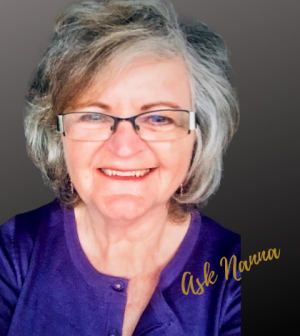- Finding Unshakable Power in a World That Wants to Pull Us ApartPosted 5 months ago
- What could a Donald Trump presidency mean for abortion rights?Posted 5 months ago
- Financial Empowerment: The Game-Changer for Women in Relationships and BeyondPosted 7 months ago
- Mental Health and Wellbeing Tips During and After PregnancyPosted 7 months ago
- Fall Renewal: Step outside your Comfort Zone & Experience Vibrant ChangePosted 7 months ago
- Women Entrepreneurs Need Support SystemsPosted 7 months ago
Anticipate, don't participate.

By: Pam Del Franco
After an outburst from your partner, do you sometimes hear yourself saying, “It’s ok, he’s had a tough day, and he’s upset.” Or “He didn’t mean it when he said…”
Those words can be healing to your relationship, or they can be destructive. The difference is that one of them is ok and one is revealing something you need to look at.
He calmly says something like, “I’ve had a tough day and don’t want to talk about it right now, let’s talk later,” or he screams (angrily), “I’ve had a tough day, so you need to leave me alone!”
After you confront him, he says (sincerely), “I’m sorry, I’m not sure where that came from, but it’s not what I meant,” or he says (angrily) I’m sorry, but you p…ed me off!”
One is from a man that takes responsibility for his behavior. The other is not. But what’s important here is your reaction. If you lean towards the acceptance of his bad behavior, you are probably resonating with something in your past.
I know it sounds a bit therapy’ y, but it’s not. (General therapy deals with pathology, dysfunction, and healing –master empowerment coaching works with mentally stable women with a focus is on strategies to reach a specific outcome.)
If you got the calm, “I’ve had a tough day…let’s talk later,” and you respond with “that sounds good.” (and you keep him at his word) then pat yourself on the back. You probably have done the work needed to feel empowered, responsive, and loving towards him.
 It’s when you passively react to “I’ve had a tough day…leave me alone!” (you don’t call him out for his behavior or you feel awful but don’t talk about it) is where you can suspect you have a trigger from your past that you don’t recognize is connected to what’s happening now in your relationship.
It’s when you passively react to “I’ve had a tough day…leave me alone!” (you don’t call him out for his behavior or you feel awful but don’t talk about it) is where you can suspect you have a trigger from your past that you don’t recognize is connected to what’s happening now in your relationship.
I get it, relationships are hard, and those who have been in them a long time know there are ups and downs. That’s natural, and sometimes maybe you even behave a little passive to calm the waters. That’s ok too.
It’s when you repeatedly put up with bad behavior that it’s a problem. There’s most likely something in you that hasn’t cleared. Some hurtful event you thought you dealt with it, or you figured it was no biggie, or you believe it has nothing to do with what’s happening now.
Often, your own behaviour doesn’t even make sense to you. You’re intelligent, successful and you take care of yourself. So it’s hard to see why you would be in this type of relationship.
But as humans, we base a lot of our behavior on patterns. Maybe because patterns feel comfortable to us, I’m not sure (I’ll leave that to neuroscientists,) but I’m really good at noticing patterns when I’m working with my clients. Most of them either didn’t see it, or they thought it wasn’t relevant to their relationship. So their reaction to lousy behavior was clouded because of their perceptions of what to expect (based on their past.)
When you understand your triggers, you can be proactive instead of reactive. When you know what that past hurt really meant to you, and how to express the emotions around that, you’ll end up seeing the connection that’s been lurking in your relationship. You’ll recognize that there’s no need to feel shame because you think with your success you shouldn’t be in this position. You’ll get that it was a hurt part of you that was driving the relationship bus. She showed up each time you accepted crap or allowed yourself to be the object of his anger.
Once you understand your triggers or responses to his bad behavior, you’ll reach a deep understanding of yourself, which will allow you to be in that place where your needs are met. You’ll make a conscious choice to anticipate your needs so that you don’t need to take part in bad behavior anymore. You’ll be able to stop wasting time and money on retail therapy, putting money into couples counseling when he’s not emotionally invested, or buying him that toy he’s always wanted in hopes of bringing him around.
You’ll place yourself in a different type of power; the real power that comes from within. Then you can make your decision to help improve your relationship (with boundaries, agreements, and long chats) or not. Whether that means ending the relationship or healing the way you react in it (allowing self-love, and demanding respect) will be your choice. And it will be a conscious choice, rather than one driven by your past.
(Image by RODNAE Productions Photography)
********
 Pam Del Franco is a Social Service Worker, Master Empowerment Coach, Author, and Psychic Medium. She’s studied the Laws of the Universe, dream interpretation, hypnotherapy and has over 30 years experience helping people like you.
Pam Del Franco is a Social Service Worker, Master Empowerment Coach, Author, and Psychic Medium. She’s studied the Laws of the Universe, dream interpretation, hypnotherapy and has over 30 years experience helping people like you.
Connect with her at: www.pamdelfranco.com | delfrancopam@gmail.com






